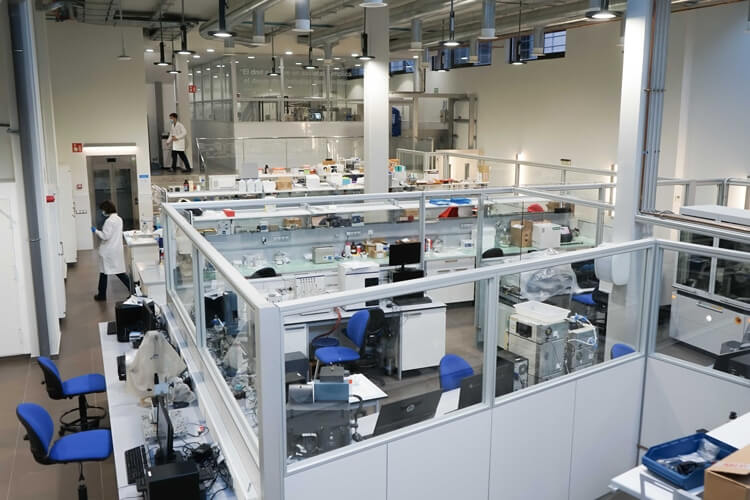Through the publication and dissemination of this issue dedicated to the Nanotechnology and Advanced Materials Unit, we would like to present the facility, the equipment and instruments that comprise it, the various services that we can offer to industry, and the excellent personnel without whom the project would not be a reality.

Coinciding with the publication of the 50th issue of our newsletter, we are dedicating this special edition entirely to presenting the IQS Nanotechnology and Advanced Materials Unit, now fully operational and making advances on new projects and opportunities.
We are pleased to share this project that is growing day by day with everyone, arising from the intense work done by the Materials Engineering Group (GEMAT) in research and technology transfer, undoubtedly one of the most innovative and entrepreneurial research groups at IQS.
The infrastructure is designed to respond to the needs of various industrial sectors based on the production and use of polymeric materials, ceramic materials, or biomaterials. It also covers the biomedical and pharmaceutical sectors, which increasingly incorporate nanotechnology in their processes.
IQS's commitment to local industry and our desire to continue strengthening the bonds that have connected us for years were the main reasons that led us to create this unit.
Through the publication and dissemination of this issue dedicated to the Nanotechnology and Advanced Materials Unit, we would like to present the facility, the equipment and instruments that comprise it, the various services that we can offer to industry, and the excellent personnel without whom the project would not be a reality.
The Nanotechnology and Advanced Materials Unit is one of the units located within the new Process Transfer and Integrative Technologies Centre (CTPTI). In addition to this unit, the 1,100 m2 building also includes the Flow Chemistry Unit and the Bioprocess Pilot Plant.
The building and equipping of the CTPTI has been co-financed by the European Regional Development Fund, granted by the Government of Catalonia's Ministry of Business and Knowledge, through the Directorate General of Research (File 2015 ERDF S-05). This grant forms part of the call for grants to select unique institutional projects to construct, acquire, equip, and/or substantially expand buildings for R&D infrastructure that make it possible to produce excellent research, attract talent, and develop knowledge transfer and valuation activities, which can be co-financed by the European Regional Development Fund (ERDF).
In addition, part of the equipment at the Nanotechnology and Advanced Materials Unit has also been sponsored by BASF and the Cellex Foundation. We would like to thank both entities not only for their financial contributions, but also for their commitment to IQS and our research mission.
IQS has a solid track record in fundamental and applied research activities, technological development, technology application, and knowledge and technology transfer to our industrial partners. This is our way of contributing to competitiveness and internalization in Catalonia. We firmly believe that synergies and connections between business and the university are essential for the growth of Catalonia's economy.
I'm certain this special issue will be of interest to you.
Dr Núria Vallmitjana
Director of IQS Tech Transfer










